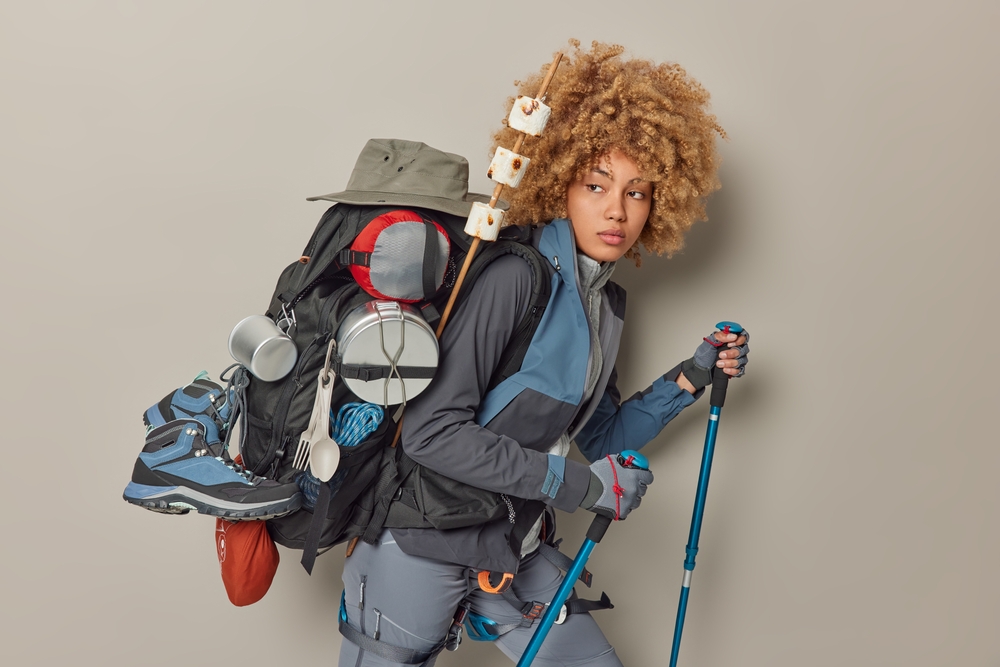
Heading into nature can clear the mind, strengthen the body, and refresh the spirit. Hikers who fail to prepare properly will find that their most appealing trail routes become dangerous paths. The selection of proper equipment makes all the difference between a safe and enjoyable journey and a dangerous and uncomfortable one. Hikers need to prepare their trips by considering both their comfort needs and potential emergencies, as well as weather conditions and route navigation. The following eight items will help you pack efficiently, keep you safe, and deliver the best hiking experience. The essential items for hiking need to be prepared in advance by all hikers regardless of their outdoor experience level.
1. Reliable Navigation Tools
Getting lost is easier than most people think, especially when trails split or signage fades. A paper map and a compass remain essential tools even in the age of smartphones. Batteries die, signals drop, and weather can interfere with GPS. Always bring a physical map of your route and know how to use it. Pair it with a compass for accuracy. For extra peace of mind, consider a GPS watch or a handheld device with offline maps. These tools help you stay oriented and minimize the risk of getting lost.
2. Water and a Filtration System
Staying hydrated is non-negotiable. Dehydration can sap energy, cloud judgment, and lead to serious health problems. Bring enough water for your hike, but also pack a lightweight filtration or purification system. Rivers and streams may look clean, but can contain bacteria or parasites. A small filter or purification tablets weigh almost nothing and can save you if you run low. Reusable bottles or hydration bladders make drinking on the go easier. Hydration planning should always be part of your must-have hiking items list.
3. Weather-Appropriate Clothing
The weather can shift quickly, especially in mountains or forests. Dress in layers so you can adjust to temperature changes. Start with moisture-wicking base layers to keep sweat off your skin. Add insulating layers for warmth and a waterproof shell to block rain and wind. Avoid cotton—it holds moisture and chills you fast. Lightweight gloves, a hat, and a buff can make a big difference in comfort. Proper clothing isn’t just about comfort; it’s a safety measure that protects you from hypothermia or overheating.
4. First Aid Kit
Blisters, scrapes, and insect bites are common on the trail, but serious injuries can happen, too. A compact first aid kit should include bandages, antiseptic wipes, adhesive tape, pain relievers, and any personal medications. Add items like tweezers, moleskin for blisters, and a small roll of gauze. It’s wise to learn basic first aid before your trip. Some hiking groups offer short courses that teach how to handle minor injuries and stabilize someone until help arrives.
5. Nutritious Food and Snacks
Food fuels your hike. Choose items that are calorie-dense, non-perishable, and easy to eat on the go. Trail mix, jerky, nuts, and energy bars are perfect for quick bites. For longer treks, pack dehydrated meals or simple sandwiches. Keep a small portion of extra food in case your hike takes longer than expected. Balanced nutrition helps maintain steady energy levels, supports your body’s recovery, and prevents fatigue from setting in too early. Make food planning part of your pre-hike checklist.
6. Emergency Shelter
Even if you plan a day hike, bring a lightweight emergency shelter or bivy sack. Weather and daylight can change more quickly than expected, leaving you vulnerable. An emergency blanket or tarp can shield you from wind and rain. Compact shelters fit easily in your pack and can mean the difference between an uncomfortable night and a dangerous one. Always prepare for the unexpected, especially when hiking in remote areas.
7. Illumination and Fire Tools
Light is essential if your hike extends past sunset or you find yourself delayed. A headlamp keeps your hands free and lights the trail ahead. Pack extra batteries or a backup flashlight. Fire-starting tools—like waterproof matches or a small lighter—help you stay warm, cook food, and signal for help if needed. Keep them in a waterproof container. Light and fire are basic survival tools that every hiker should include among their must-have hiking items.
8. Multi-Tool and Repair Kit
A multi-tool can handle countless small problems on the trail. Loose screws, broken straps, or torn gear can quickly become major inconveniences. A knife, scissors, and screwdriver attachments can fix most issues. Add duct tape, zip ties, and a few safety pins to your repair kit. These small items can patch holes, secure equipment, or even help in an emergency. Keeping your gear functional ensures your trip stays on track.
Preparing for the Unexpected
People can explore nature through hiking, but they need to prepare correctly to stay safe and have a good time. The essential items you bring will help you deal with any emergency that may occur while hiking. The goal should be to select essential gear that ensures safety and comfort, rather than attempting to move all belongings. The process of smart packing enables you to feel assured, so you can appreciate your environment while avoiding worries about forgotten items.
What single item do you always bring when you head out for hiking? Share your thoughts and experiences in the comments below.
What to Read Next…
- 8 Things You’re Doing That Make Criminals Think You’re an Easy Target
- 7 Places Criminals Watch Before Picking a Home to Rob
- 8 Common Home Security Features That Aren’t as Safe as You Think
- 7 Ways Your Neighbor Could Be Spying on You Without Breaking the Law
- What Do Police Say About These Safe Neighborhood Assumptions?
The post 8 Must-Have Items Every Hiker Should Pack Before the Trail appeared first on The Free Financial Advisor.







